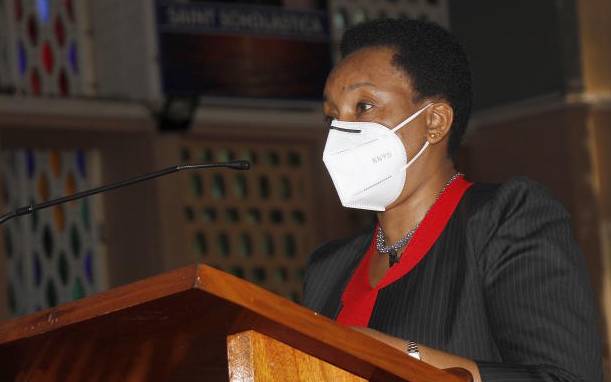×
The Standard e-Paper
Join Thousands Daily

Deputy Chief Justice Philomena Mwilu address congregants during the 10th Commemoration Anniversary of the current Constitution. [Wilberforce Okwiri, Standard]
The Deputy Chief Justice Philomena Mwilu has a five-judge bench to hear and determine the constitutional merit of Chief Justice David Maraga’s advisory to dissolve Parliament.